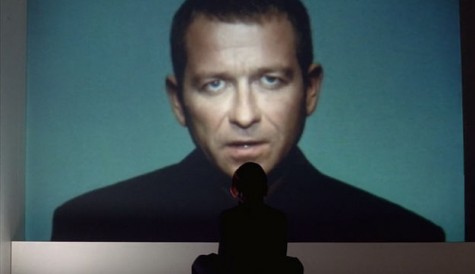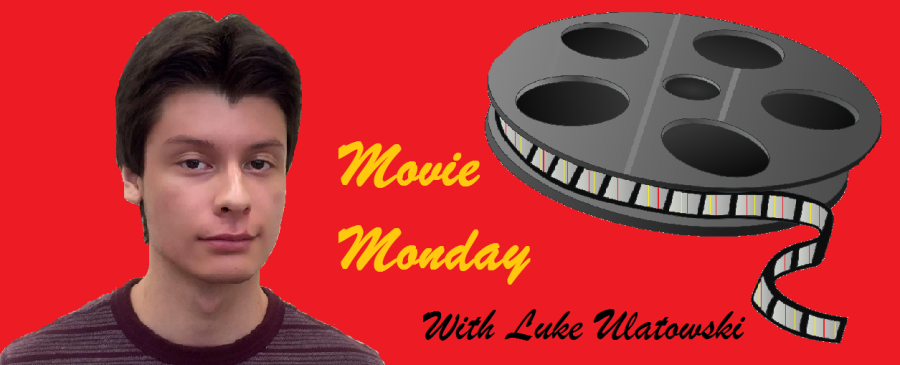Movie Monday with Luke: “Equilibrium” ridiculous, fails at being intelligent
October 5, 2015
If there’s one genre of film that can power through abysmal reviews to dominate the box office, it’s action. If you only went by what people on the internet said, you’d think the modern “Transformers” films were universally hated, but all four reside in the worldwide top seventy box office grossers. Why? Because there’s an appeal to turning off your brain for two hours to witness a collection of crazy battles and impressive special effects. If the sad box office performance of Kurt Wimmer’s “Equilibrium” from 2002 is anything to go by, the “turning off your brain” part is vital, up to the point where making the slightest effort to be intelligent and failing is enough to turn away the average audience.
“Equilibrium” takes place in a dystopian near-future. After a third world war, an enigmatic face on a screen called Father (Sean Pertwee) holds supreme reign over Libria, a state inhabited by its survivors. Believing emotion to be the root of war, he has all of his people inject a medicine called Prozium daily, which blocks all of their feelings. This law is enforced by Grammaton Clerics, who are trained in the art of Gun Kata (kung fu with guns) to hunt down sense offenders: citizens who go off their meds to enjoy art, love and family. After losing his wife and killing his sense-offending partner (Sean Bean), a cleric named Preston (Christian Bale) begins to rethink his role in society. When he experiments with going off his meds, his sly new partner Brandt (Taye Diggs) realizes something is up…
Just read the synopsis of “Fahrenheit 451” on Wikipedia. For the first two acts, it’s down to a T, with a law-enforcing protagonist burning books, realizing he’s wrong with the help of a girl, dealing with a much more dedicated partner and a family member who’s fully indulged in the manipulation surrounding them, meeting a secret society who read as many books as they want, etcetera, etcetera. There are even wall TVs! The significant plot changes come in the third act, and while they’re mostly a result of streamlining and simplifying for the sake of action, they do make for a more satisfying ending than “Fahrenheit 451.” But that’s another story.

In an effort to be intelligent, “Equilibrium” looks to dystopian stories considered to be intelligent by the majority, such as “Fahrenheit 451,” “A Brave New World” and “1984,” steals their essence and lays it over the action scenes. Any effort to deviate from those stories makes no sense at all. In “Fahrenheit 451,” only thinking certain ways was discouraged; everyone was encouraged to be happy with distractions and mindless entertainment. In “Equilibrium,” feeling any emotion whatsoever is against the law. That’s a little broad, isn’t it? As the concept is stated outright by Father in the first ten minutes, it’s impossible to watch the rest of the movie without thinking “Come on, that was an emotion!” every time someone cracks a face, uses inflection on a word, reminisces of their past, admires their own goals, or shows concern for someone else and doesn’t get arrested. Some would argue that indifference is an emotion itself. At any rate, “Thought Police” sounds much more threatening than “Feel Police,” and it’s much easier to imagine being pursued by them instead. “Equilibrium” lacks relevance in an era driven by anger, revenge and entitlement.
Despite the near complete lack of originality in the story, there are some admirable things within. The film does not pull any punches. Truly just efforts by the protagonist don’t always work. He isn’t able to save many of the people he tries to help from their swift and, dare I say, realistic deaths. Through character death and other means, the film is willing to change direction on a whim. The third act in particular has plenty of twists, some admirable, some not so much, but their quick succession will definitely keep you on the edge of your seat.
The characters are well-defined in their traits and beliefs, despite the premise of the film. However, they’re not always used to their fullest potential. The use of Preston’s kids is disappointing. His son seems to fully believe in Father’s words, acting as an eye of the government in his very own home, watching and questioning his every move. He’s an obvious offshoot of Fahrenheit 451’s Mildred, but interestingly, the premise calls for him to be her polar opposite: stoic and militant instead of loud-mouthed and carefree. He could have been an entertaining obstacle for Preston. What’s more, the film could have shown Preston try to teach his son a healthy way to deal with his mother’s death, against everything he had been told in the past. Unfortunately, just like Mildred, he’s thrown to the wayside in the third act, only in a way that makes his past actions even less relevant.
There’s also Preston’s daughter, who plays with her breakfast as her father and brother try not to mention the implications. Otherwise, she doesn’t do anything, and she literally doesn’t say anything. The first scene in which Preston fights against society is one in which he kills a group of policemen who try to seize a puppy he had recently snuck away from a mass puppy execution. I’m telling you, he goes ape for this puppy, flipping all over the place and blowing everyone’s heads off. A human would be a much more suitable subject for such a vital turning point in Preston’s character, especially one he has a history with. Who better than his daughter?
As the film begins to make an effort to have a good story, it must be judged based on the merits of said story. However, now that I’ve finished talking about all that, let’s talk about the one thing everyone remembers the film for: the action. Wimmer and stunt coordinator developed a gun-based martial art called Gun Kata specifically for this film’s use. While such a concept is only marginally more original than the rest of the film (John Woo has been no stranger to gun-happy kung fu since the 80s, and a little-known, real-life Japanese martial art called Hojutsu concerns firearms), the choreography is top-notch. The actions scenes are fun to watch until they’re inevitably interrupted by awkward closeups, choppy slow-motion and unfitting music, at which point they become an absolute blast. The content is ridiculous; the editing, hilarious.
SHOULD YOU WATCH IT? Only if you want to laugh about it with your friends. You know a film is special when it lacks an original bone in its body and still manages to make no sense at all. Through its ridiculous escalation of recycled concepts, Equilibrium fails to attain the intelligent edge it yearns for, but at the same time provides a case for more action films to try: the fun that comes from picking it apart outlives the fleeting catharsis gained from its fight scenes.
WATCH IF YOU LIKE: The Wachowskis’ 1996 sci-fi classic “The Matrix”, what with its crazy gunfights, men in black coats and all. Perhaps if you’re interested in seeing the culmination of cinema’s gun fu affinity that started with John Woo’s “A Better Tomorrow” from 1986, “Equilibrium” is where it’s at.


